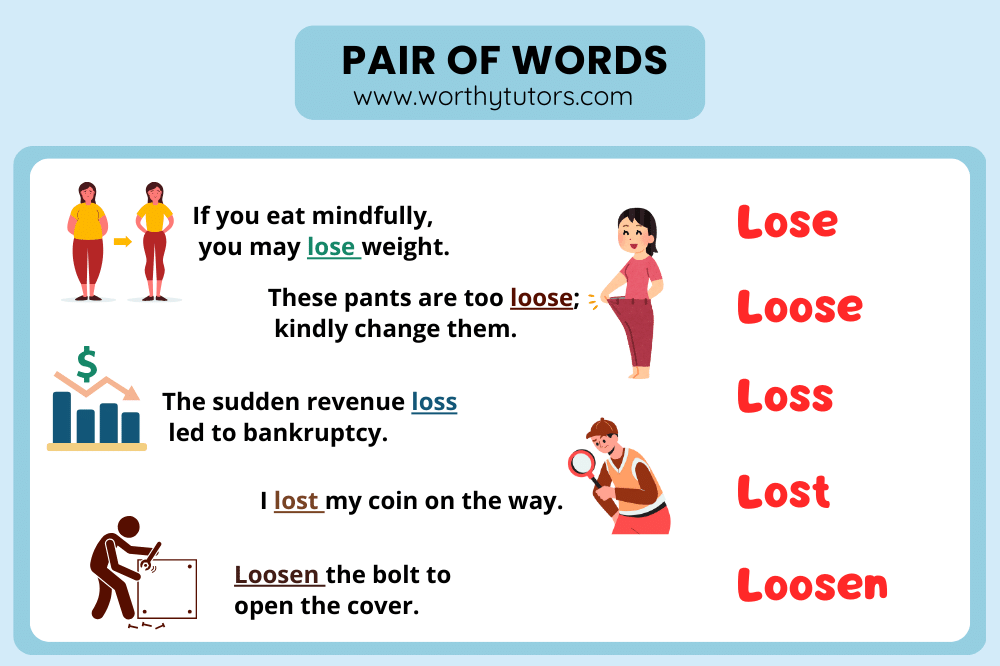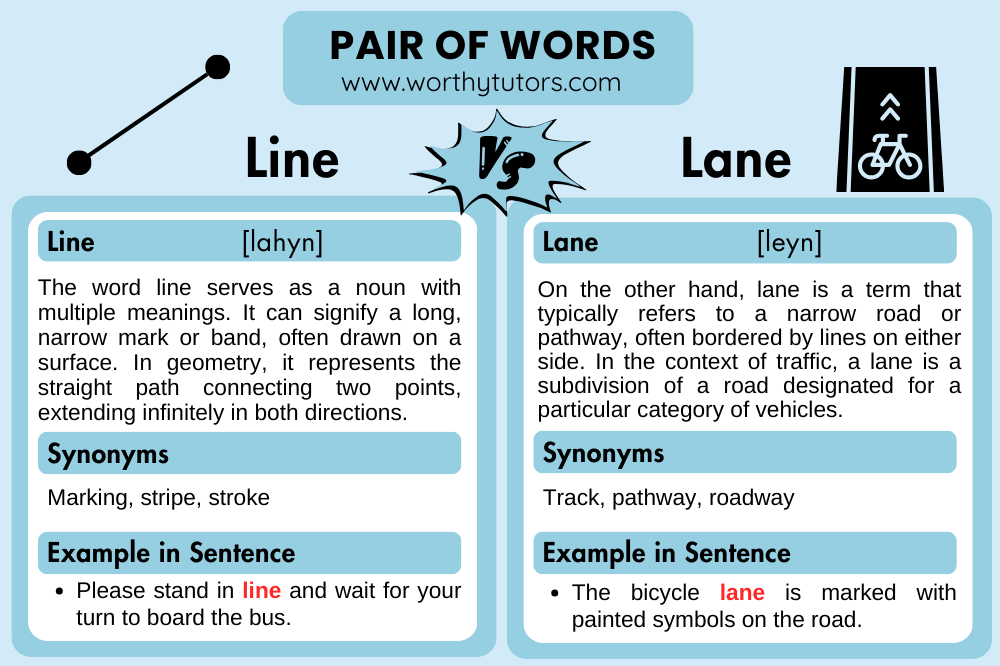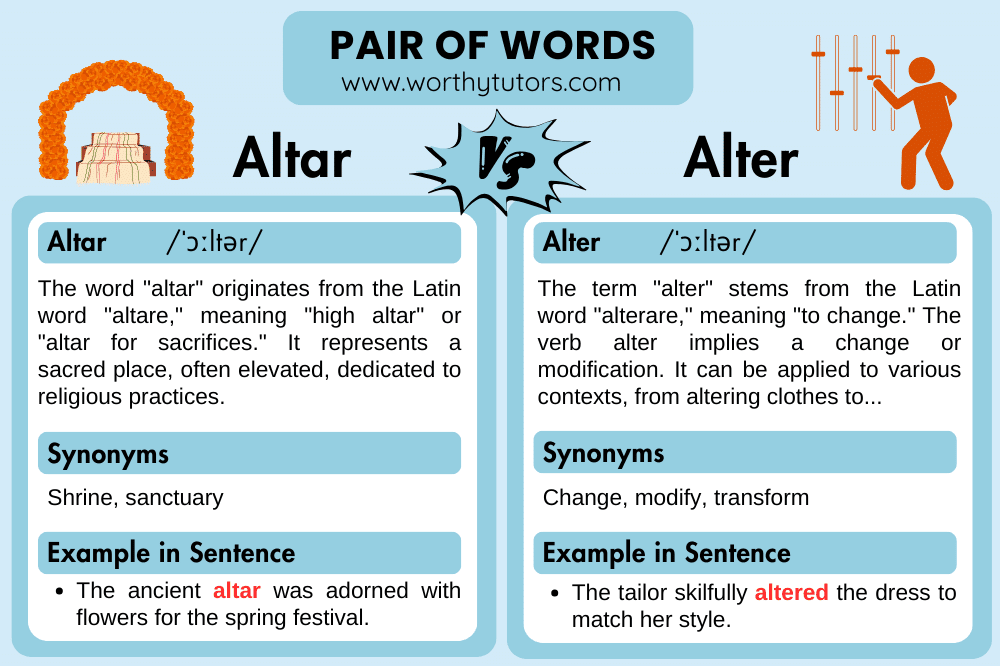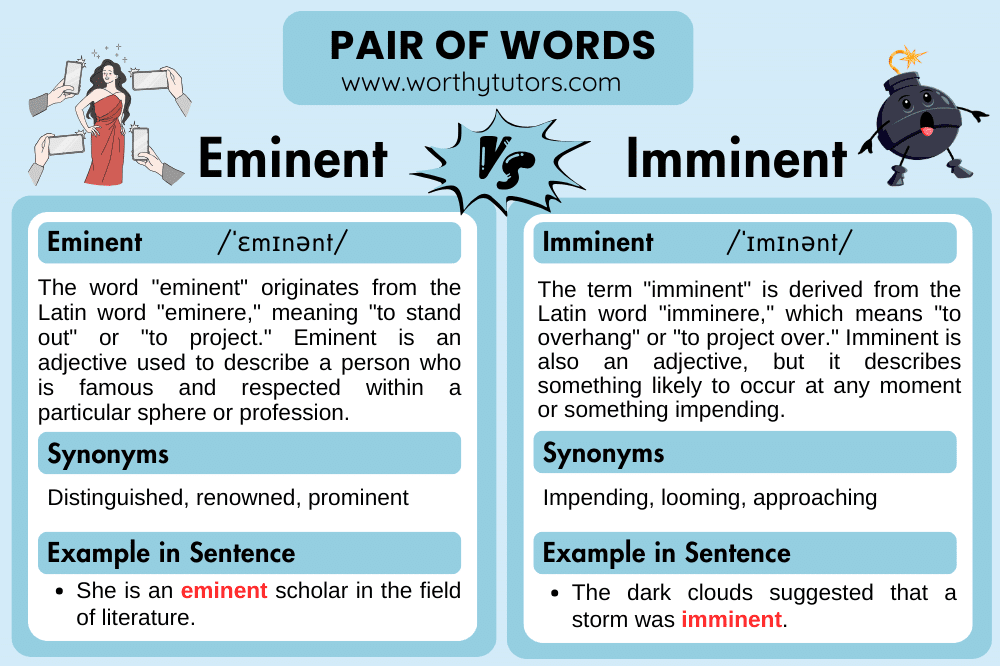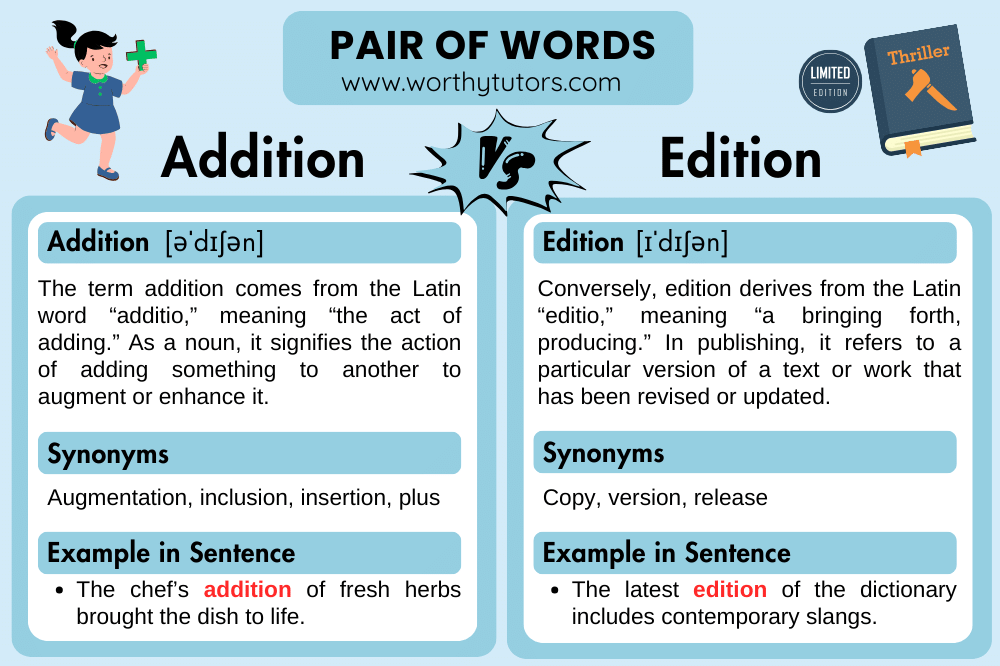Differences Between Lose, loss, lost, loose, and Loosen The English language is a labyrinth of words where even the slightest …
Read MoreVocabulary
Finding Hidden Differences between Line and Lane
Differences Between Line and Lane The beauty of language lies in its precision and the power it bestows upon us …
Read MoreDifferentiating Homophones | Altar vs. Alter
Know the Differences Between Altar and alter Homophones in the English language are a fascinating phenomenon, where words sounding identical …
Read MoreDistinguishing Between Eminent and Imminent | Homophones
Differences Between Eminent and Imminent In the English language, certain words may sound similar but have vastly different meanings, leading …
Read MoreIsle vs. Aisle: Knowing the Differences
Knowing the Difference Between Isle and Aisle English abounds with words that sound alike but hold distinct meanings, termed homophones. …
Read MoreAffect vs. Effect: Differentiating Pair of Words
Differentiating Affects and Effects In the English language, certain words cause more than their fair share of confusion. “Affect” and …
Read MoreAdvice vs. Advise: Understanding the Differences
Differentiating Advice and Advise English is abundant in words that share similarities in sound yet differ in meanings and applications. …
Read MoreAddition vs. Edition | Dissecting Homophones
Understanding the Difference: Addition vs. Edition The English language is a treasure trove of words that, while sounding similar, carry …
Read MoreOxford Learner’s Dictionary vs. Merriam-Webster’s Dictionary
Oxford Learner’s Dictionary vs. Merriam-Webster’s Dictionary: A Comprehensive Comparison for ESL Learners ESL (English as a Second Language) learners often …
Read MoreCommon Words in AmE English (US) vs. BrE English (UK)
Common words that people use differently for the same things in American English and Standard British English. English Language is …
Read More